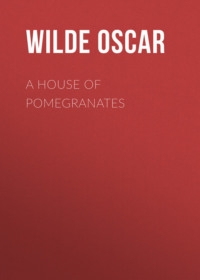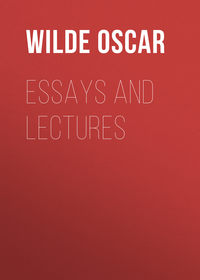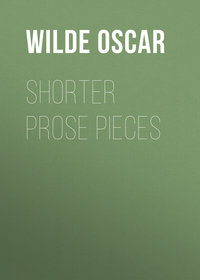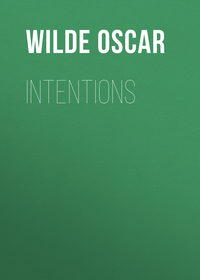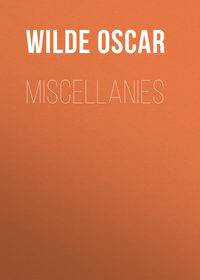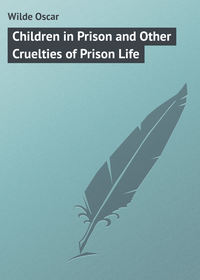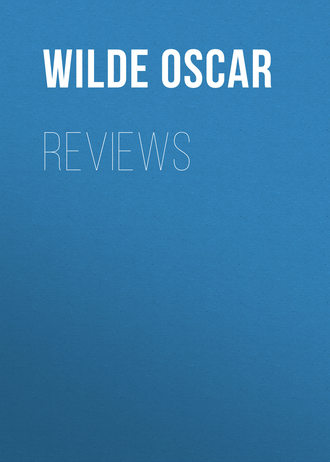 полная версия
полная версияReviews
Each month, as it passes, calls for new praise and for music different from our own. July is a ‘lady, born in wind and rain’; in August
Across the range, by every scarred black fell,Strong Winter blows his horn of wild farewell;while October is ‘the queen of all the year,’ the ‘lady of the yellow hair,’ who strays ‘with blossom-trammelled feet’ across the ‘haughty-featured hills,’ and brings the Spring with her. We must certainly try to accustom ourselves to the mopoke and the sarsaparilla plant, and to make the gum-tree and the buddawong as dear to us as the olives and the narcissi of white Colonus. After all, the Muses are great travellers, and the same foot that stirred the Cumnor cowslips may some day brush the fallen gold of the wattle blossoms and tread delicately over the tawny bush-grass.
Mr. Sladen has, of course, a great belief in the possibilities of Australian poetry. There are in Australia, he tells us, far more writers capable of producing good work than has been assumed. It is only natural, he adds, that this should be so, ‘for Australia has one of those delightful climates conducive to rest in the open air. The middle of the day is so hot that it is really more healthful to lounge about than to take stronger exercise.’ Well, lounging in the open air is not a bad school for poets, but it largely depends on the lounger. What strikes one on reading over Mr. Sladen’s collection is the depressing provinciality of mood and manner in almost every writer. Page follows page, and we find nothing but echoes without music, reflections without beauty, second-rate magazine verses and third-rate verses for Colonial newspapers. Poe seems to have had some influence – at least, there are several parodies of his method – and one or two writers have read Mr. Swinburne; but, on the whole, we have artless Nature in her most irritating form. Of course Australia is young, younger even than America whose youth is now one of her oldest and most hallowed traditions, but the entire want of originality of treatment is curious. And yet not so curious, perhaps, after all. Youth is rarely original.
There are, however, some exceptions. Henry Clarence Kendall had a true poetic gift. The series of poems on the Austral months, from which we have already quoted, is full of beautiful things; Landor’s Rose Aylmer is a classic in its way, but Kendall’s Rose Lorraine is in parts not unworthy to be mentioned after it; and the poem entitled Beyond Kerguelen has a marvellous music about it, a wonderful rhythm of words and a real richness of utterance. Some of the lines are strangely powerful, and, indeed, in spite of its exaggerated alliteration, or perhaps in consequence of it, the whole poem is a most remarkable work of art.
Down in the South, by the waste without sail on it —Far from the zone of the blossom and tree —Lieth, with winter and whirlwind and wail on it,Ghost of a land by the ghost of a sea.Weird is the mist from the summit to base of it;Sun of its heaven is wizened and grey;Phantom of light is the light on the face of it —Never is night on it, never is day!Here is the shore without flower or bird on it;Here is no litany sweet of the springs —Only the haughty, harsh thunder is heard on it,Only the storm, with a roar in its wings!Back in the dawn of this beautiful sphere, on it —Land of the dolorous, desolate face —Beamed the blue day; and the beautiful year on itFostered the leaf and the blossom of grace.Grand were the lights of its midsummer noon on it —Mornings of majesty shone on its seas;Glitter of star and the glory of moon on itFell, in the march of the musical breeze.Valleys and hills, with the whisper of wing in them,Dells of the daffodil – spaces impearled,Flowered and flashed with the splendour of spring in them,Back in the morn of this wonderful world.Mr. Sladen speaks of Alfred Domett as ‘the author of one of the great poems of a century in which Shelley and Keats, Byron and Scott, Wordsworth and Tennyson have all flourished,’ but the extracts he gives from Ranolf and Amohia hardly substantiate this claim, although the song of the Tree-God in the fourth book is clever but exasperating.
A Midsummer’s Noon, by Charles Harpur, ‘the grey forefather of Australian poetry,’ is pretty and graceful, and Thomas Henry’s Wood-Notes and Miss Veel’s Saturday Night are worth reading; but, on the whole, the Australian poets are extremely dull and prosaic. There seem to be no sirens in the New World. As for Mr. Sladen himself, he has done his work very conscientiously. Indeed, in one instance he almost re-writes an entire poem in consequence of the manuscript having reached him in a mutilated condition.
A pleasant land is the land of dreamsAt the back of the shining air!It hath sunnier skies and sheenier streams,And gardens than Earth’s more fair,is the first verse of this lucubration, and Mr. Sladen informs us with justifiable pride that the parts printed in italics are from his own pen! This is certainly editing with a vengeance, and we cannot help saying that it reflects more credit on Mr. Sladen’s good nature than on his critical or his poetical powers. The appearance, also, in a volume of ‘poems produced in Australia,’ of selections from Horne’s Orion cannot be defended, especially as we are given no specimen of the poetry Horne wrote during the time that he actually was in Australia, where he held the office of ‘Warden of the Blue Mountains’ – a position which, as far as the title goes, is the loveliest ever given to any poet, and would have suited Wordsworth admirably: Wordsworth, that is to say, at his best, for he not infrequently wrote like the Distributor of Stamps. However, Mr. Sladen has shown great energy in the compilation of this bulky volume which, though it does not contain much that is of any artistic value, has a certain historical interest, especially for those who care to study the conditions of intellectual life in the colonies of a great empire. The biographical notices of the enormous crowd of verse-makers which is included in this volume are chiefly from the pen of Mr. Patchett Martin. Some of them are not very satisfactory. ‘Formerly of West Australia, now residing at Boston, U.S. Has published several volumes of poetry,’ is a ludicrously inadequate account of such a man as John Boyle O’Reilly, while in ‘poet, essayist, critic, and journalist, one of the most prominent figures in literary London,’ few will recognise the industrious Mr. William Sharp.
Still, on the whole, we should be grateful for a volume that has given us specimens of Kendall’s work, and perhaps Mr. Sladen will some day produce an anthology of Australian poetry, not a herbarium of Australian verse. His present book has many good qualities, but it is almost unreadable.
Australian Poets, 1788-1888. Edited by Douglas B. W. Sladen, B.A. Oxon. (Griffith, Farran and Co.)
SOME LITERARY NOTES – I
(Woman’s World, January 1889.)
In a recent article on English Poetesses, 7 I ventured to suggest that our women of letters should turn their attention somewhat more to prose and somewhat less to poetry. Women seem to me to possess just what our literature wants – a light touch, a delicate hand, a graceful mode of treatment, and an unstudied felicity of phrase. We want some one who will do for our prose what Madame de Sévigné did for the prose of France. George Eliot’s style was far too cumbrous, and Charlotte Brontë’s too exaggerated. However, one must not forget that amongst the women of England there have been some charming letter-writers, and certainly no book can be more delightful reading than Mrs. Ross’s Three Generations of English Women, which has recently appeared. The three Englishwomen whose memoirs and correspondence Mrs. Ross has so admirably edited are Mrs. John Taylor, Mrs. Sarah Austin, and Lady Duff Gordon, all of them remarkable personalities, and two of them women of brilliant wit and European reputation. Mrs. Taylor belonged to that great Norwich family about whom the Duke of Sussex remarked that they reversed the ordinary saying that it takes nine tailors to make a man, and was for many years one of the most distinguished figures in the famous society of her native town. Her only daughter married John Austin, the great authority on jurisprudence, and her salon in Paris was the centre of the intellect and culture of her day. Lucie Duff Gordon, the only child of John and Sarah Austin, inherited the talents of her parents. A beauty, a femme d’esprit, a traveller, and clever writer, she charmed and fascinated her age, and her premature death in Egypt was really a loss to our literature. It is to her daughter that we owe this delightful volume of memoirs.
First we are introduced to Mrs. Ross’s great-grandmother, Mrs. Taylor, who ‘was called, by her intimate friends, “Madame Roland of Norwich,” from her likeness to the portraits of the handsome and unfortunate Frenchwoman.’ We hear of her darning her boy’s grey worsted stockings while holding her own with Southey and Brougham, and dancing round the Tree of Liberty with Dr. Parr when the news of the fall of the Bastille was first known. Amongst her friends were Sir James Mackintosh, the most popular man of the day, ‘to whom Madame de Staël wrote, “Il n’y a pas de société sans vous.” “C’est très ennuyeux de dîner sans vous; la société ne va pas quand vous n’êtes pas là”;’ Sir James Smith, the botanist; Crabb Robinson; the Gurneys; Mrs. Barbauld; Dr. Alderson and his charming daughter, Amelia Opie; and many other well-known people. Her letters are extremely sensible and thoughtful. ‘Nothing at present,’ she says in one of them, ‘suits my taste so well as Susan’s Latin lessons, and her philosophical old master.. When we get to Cicero’s discussions on the nature of the soul, or Virgil’s fine descriptions, my mind is filled up. Life is either a dull round of eating, drinking, and sleeping, or a spark of ethereal fire just kindled… The character of girls must depend upon their reading as much as upon the company they keep. Besides the intrinsic pleasure to be derived from solid knowledge, a woman ought to consider it as her best resource against poverty.’ This is a somewhat caustic aphorism: ‘A romantic woman is a troublesome friend, as she expects you to be as imprudent as herself, and is mortified at what she calls coldness and insensibility.’ And this is admirable: ‘The art of life is not to estrange oneself from society, and yet not to pay too dear for it.’ This, too, is good: ‘Vanity, like curiosity, is wanted as a stimulus to exertion; indolence would certainly get the better of us if it were not for these two powerful principles’; and there is a keen touch of humour in the following: ‘Nothing is so gratifying as the idea that virtue and philanthropy are becoming fashionable.’ Dr. James Martineau, in a letter to Mrs. Ross, gives us a pleasant picture of the old lady returning from market ‘weighted by her huge basket, with the shank of a leg of mutton thrust out to betray its contents,’ and talking divinely about philosophy, poets, politics, and every intellectual topic of the day. She was a woman of admirable good sense, a type of Roman matron, and quite as careful as were the Roman matrons to keep up the purity of her native tongue.
Mrs. Taylor, however, was more or less limited to Norwich. Mrs. Austin was for the world. In London, Paris, and Germany, she ruled and dominated society, loved by every one who knew her. ‘She is “My best and brightest” to Lord Jeffrey; “Dear, fair and wise” to Sydney Smith; “My great ally” to Sir James Stephen; “Sunlight through waste weltering chaos” to Thomas Carlyle (while he needed her aid); “La petite mère du genre humain” to Michael Chevalier; “Liebes Mütterlein” to John Stuart Mill; and “My own Professorin” to Charles Buller, to whom she taught German, as well as to the sons of Mr. James Mill.’ Jeremy Bentham, when on his deathbed, gave her a ring with his portrait and some of his hair let in behind. ‘There, my dear,’ he said, ‘it is the only ring I ever gave a woman.’ She corresponded with Guizot, Barthelemy de St. Hilaire, the Grotes, Dr. Whewell, the Master of Trinity, Nassau Senior, the Duchesse d’Orléans, Victor Cousin, and many other distinguished people. Her translation of Ranke’s History of the Popes is admirable; indeed, all her literary work was thoroughly well done, and her edition of her husband’s Province of Jurisprudence deserves the very highest praise. Two people more unlike than herself and her husband it would have been difficult to find. He was habitually grave and despondent; she was brilliantly handsome, fond of society, in which she shone, and ‘with an almost superabundance of energy and animal spirits,’ Mrs. Ross tells us. She married him because she thought him perfect, but he never produced the work of which he was worthy, and of which she knew him to be worthy. Her estimate of him in the preface to the Jurisprudence is wonderfully striking and simple. ‘He was never sanguine. He was intolerant of any imperfection. He was always under the control of severe love of truth. He lived and died a poor man.’ She was terribly disappointed in him, but she loved him. Some years after his death, she wrote to M. Guizot:
In the intervals of my study of his works I read his letters to me – forty-five years of love-letters, the last as tender and passionate as the first. And how full of noble sentiments! The midday of our lives was clouded and stormy, full of cares and disappointments; but the sunset was bright and serene – as bright as the morning, and more serene. Now it is night with me, and must remain so till the dawn of another day. I am always alone – that is, I live with him.
The most interesting letters in the book are certainly those to M. Guizot, with whom she maintained the closest intellectual friendship; but there is hardly one of them that does not contain something clever, or thoughtful, or witty, while those addressed to her, in turn, are very interesting. Carlyle writes her letters full of lamentations, the wail of a Titan in pain, superbly exaggerated for literary effect.
Literature, one’s sole craft and staff of life, lies broken in abeyance; what room for music amid the braying of innumerable jackasses, the howling of innumerable hyænas whetting the tooth to eat them up? Alas for it! it is a sick disjointed time; neither shall we ever mend it; at best let us hope to mend ourselves. I declare I sometimes think of throwing down the Pen altogether as a worthless weapon; and leading out a colony of these poor starving Drudges to the waste places of their old Mother Earth, when for sweat of their brow bread will rise for them; it were perhaps the worthiest service that at this moment could be rendered our old world to throw open for it the doors of the New. Thither must they come at last, ‘bursts of eloquence’ will do nothing; men are starving and will try many things before they die. But poor I, ach Gott! I am no Hengist or Alaric; only a writer of Articles in bad prose; stick to thy last, O Tutor; the Pen is not worthless, it is omnipotent to those who have Faith.
Henri Beyle (Stendhal), the great, I am often tempted to think the greatest of French novelists, writes her a charming letter about nuances. ‘It seems to me,’ he says, ‘that except when they read Shakespeare, Byron, or Sterne, no Englishman understands “nuances”; we adore them. A fool says to a woman, “I love you”; the words mean nothing, he might as well say “Olli Batachor”; it is the nuance which gives force to the meaning.’ In 1839 Mrs. Austin writes to Victor Cousin: ‘I have seen young Gladstone, a distinguished Tory who wants to re-establish education based on the Church in quite a Catholic form’; and we find her corresponding with Mr. Gladstone on the subject of education. ‘If you are strong enough to provide motives and checks,’ she says to him, ‘you may do two blessed acts – reform your clergy and teach your people. As it is, how few of them conceive what it is to teach a people’! Mr. Gladstone replies at great length, and in many letters, from which we may quote this passage:
You are for pressing and urging the people to their profit against their inclination: so am I. You set little value upon all merely technical instruction, upon all that fails to touch the inner nature of man: so do I. And here I find ground of union broad and deep-laid.
I more than doubt whether your idea, namely that of raising man to social sufficiency and morality, can be accomplished, except through the ancient religion of Christ;.. or whether, the principles of eclecticism are legitimately applicable to the Gospel; or whether, if we find ourselves in a state of incapacity to work through the Church, we can remedy the defect by the adoption of principles contrary to hers.
But indeed I am most unfit to pursue the subject; private circumstances of no common interest are upon me, as I have become very recently engaged to Miss Glynne, and I hope your recollections will enable you in some degree to excuse me.
Lord Jeffrey has a very curious and suggestive letter on popular education, in which he denies, or at least doubts, the effect of this education on morals. He, however, supports it on the ground ‘that it will increase the enjoyment of individuals,’ which is certainly a very sensible claim. Humboldt writes to her about an old Indian language which was preserved by a parrot, the tribe who spoke it having been exterminated, and about ‘young Darwin,’ who had just published his first book. Here are some extracts from her own letters:
I heard from Lord Lansdowne two or three days ago… I think he is ce que nous avons de mieux. He wants only the energy that great ambition gives. He says, ‘We shall have a parliament of railway kings’.. what can be worse than that? – The deification of money by a whole people. As Lord Brougham says, we have no right to give ourselves pharisaical airs. I must give you a story sent to me. Mrs. Hudson, the railway queen, was shown a bust of Marcus Aurelius at Lord Westminster’s, on which she said, ‘I suppose that is not the present Marquis.’ To goûter this, you must know that the extreme vulgar (hackney coachmen, etc.) in England pronounce ‘marquis’ very like ‘Marcus.’
Dec, 11th. – Went to Savigny’s. Nobody was there but W. Grimm and his wife and a few men. Grimm told me he had received two volumes of Norwegian fairy-tales, and that they were delightful. Talking of them, I said, ‘Your children appear to be the happiest in the world; they live in the midst of fairytales.’ ‘Ah,’ said he, ‘I must tell you about that. When we were at Göttingen, somebody spoke to my little son about his father’s Mährchen. He had read them, but never thought of their being mine. He came running to me, and said with an offended air, “Father, they say you wrote those fairy-tales; surely you never invented such silly rubbish?” He thought it below my dignity.’
Savigny told a Volksmährchen too:
‘St. Anselm was grown old and infirm, and lay on the ground among thorns and thistles. Der liebe Gott said to him, “You are very badly lodged there; why don’t you build yourself a house?” “Before I take the trouble,” said Anselm, “I should like to know how long I have to live.” “About thirty years,” said Der liebe Gott. “Oh, for so short a time,” replied he, “it’s not worth while,” and turned himself round among the thistles.’
Dr. Franck told me a story of which I had never heard before. Voltaire had for some reason or other taken a grudge against the prophet Habakkuk, and affected to find in him things he never wrote. Somebody took the Bible and began to demonstrate to him that he was mistaken. ‘C’est égal,’ he said, impatiently, ‘Habakkuk était capable de tout!’
Oct. 30, 1853.
I am not in love with the Richtung (tendency) of our modern novelists. There is abundance of talent; but writing a pretty, graceful, touching, yet pleasing story is the last thing our writers nowadays think of. Their novels are party pamphlets on political or social questions, like Sybil, or Alton Locke, or Mary Barton, or Uncle Tom; or they are the most minute and painful dissections of the least agreeable and beautiful parts of our nature, like those of Miss Brontë – Jane Eyre and Villette; or they are a kind of martyrology, like Mrs. Marsh’s Emilia Wyndham, which makes you almost doubt whether any torments the heroine would have earned by being naughty could exceed those she incurred by her virtue.
Where, oh! where is the charming, humane, gentle spirit that dictated the Vicar of Wakefield – the spirit which Goethe so justly calls versöhnend (reconciling), with all the weaknesses and woes of humanity?.. Have you read Thackeray’s Esmond? It is a curious and very successful attempt to imitate the style of our old novelists… Which of Mrs. Gore’s novels are translated? They are very clever, lively, worldly, bitter, disagreeable, and entertaining… Miss Austen’s – are they translated? They are not new, and are Dutch paintings of every-day people – very clever, very true, very unæsthetic, but amusing. I have not seen Ruth, by Mrs. Gaskell. I hear it much admired – and blamed. It is one of the many proofs of the desire women now have to friser questionable topics, and to poser insoluble moral problems. George Sand has turned their heads in that direction. I think a few broad scenes or hearty jokes à la Fielding were very harmless in comparison. They confounded nothing..
The Heir of Redcliffe I have not read… I am not worthy of superhuman flights of virtue – in a novel. I want to see how people act and suffer who are as good-for-nothing as I am myself. Then I have the sinful pretension to be amused, whereas all our novelists want to reform us, and to show us what a hideous place this world is: Ma foi, je ne le sais que trap, without their help.
The Head of the Family has some merits.. But there is too much affliction and misery and frenzy. The heroine is one of those creatures now so common (in novels), who remind me of a poor bird tied to a stake (as was once the cruel sport of boys) to be ‘shyed’ at (i.e. pelted) till it died; only our gentle lady-writers at the end of all untie the poor battered bird, and assure us that it is never the worse for all the blows it has had – nay, the better – and that now, with its broken wings and torn feathers and bruised body, it is going to be quite happy. No, fair ladies, you know that it is not so – resigned, if you please, but make me no shams of happiness out of such wrecks.
In politics Mrs. Austin was a philosophical Tory. Radicalism she detested, and she and most of her friends seem to have regarded it as moribund. ‘The Radical party is evidently effete,’ she writes to M. Victor Cousin; the probable ‘leader of the Tory party’ is Mr. Gladstone. ‘The people must be instructed, must be guided, must be, in short, governed,’ she writes elsewhere; and in a letter to Dr. Whewell, she says that the state of things in France fills ‘me with the deepest anxiety on one point, – the point on which the permanency of our institutions and our salvation as a nation turn. Are our higher classes able to keep the lead of the rest? If they are, we are safe; if not, I agree with my poor dear Charles Buller —our turn must come. Now Cambridge and Oxford must really look to this.’ The belief in the power of the Universities to stem the current of democracy is charming. She grew to regard Carlyle as ‘one of the dissolvents of the age – as mischievous as his extravagances will let him be’; speaks of Kingsley and Maurice as ‘pernicious’; and talks of John Stuart Mill as a ‘demagogue.’ She was no doctrinaire. ‘One ounce of education demanded is worth a pound imposed. It is no use to give the meat before you give the hunger.’ She was delighted at a letter of St. Hilaire’s, in which he said, ‘We have a system and no results; you have results and no system.’ Yet she had a deep sympathy with the wants of the people. She was horrified at something Babbage told her of the population of some of the manufacturing towns who are worked out before they attain to thirty years of age. ‘But I am persuaded that the remedy will not, cannot come from the people,’ she adds. Many of her letters are concerned with the question of the higher education of women. She discusses Buckle’s lecture on ‘The Influence of Women upon the Progress of Knowledge,’ admits to M. Guizot that women’s intellectual life is largely coloured by the emotions, but adds: ‘One is not precisely a fool because one’s opinions are greatly influenced by one’s affections. The opinions of men are often influenced by worse things.’ Dr. Whewell consults her about lecturing women on Plato, being slightly afraid lest people should think it ridiculous; Comte writes her elaborate letters on the relation of women to progress; and Mr. Gladstone promises that Mrs. Gladstone will carry out at Hawarden the suggestions contained in one of her pamphlets. She was always very practical, and never lost her admiration for plain sewing.


